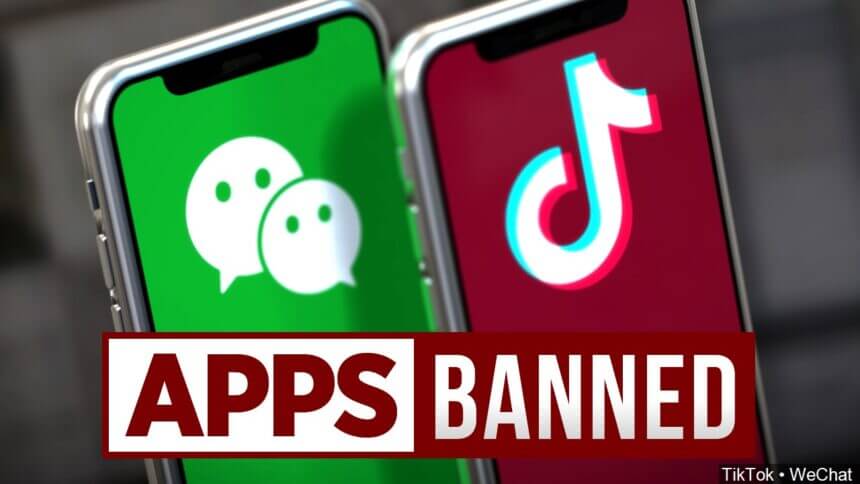If you’ve been keeping up with current events – and frankly, we don’t blame you if you’ve decided not to – then you may be aware that TikTok has been in some hot water recently with certain world governments. Some authorities seem to have issues with the app, and while those issues are many and varied, they often come down to the same basic points. We thought it would be helpful to take a look at why some governments don’t like TikTok, and what that could mean for ByteDance’s phenomenally successful and popular app in the future.
The United States

First and foremost, let’s take a look at the United States. President Donald Trump – whose term ends in a few days – has railed against TikTok on numerous occasions. Primarily, Trump has cited security concerns; he believes that TikTok’s parent company ByteDance is in too deep with the Chinese government, and that data collected by ByteDance is shared with that government, leading to security holes. For its part, ByteDance has always vehemently denied that it constitutes any form of security risk for the US. With Trump giving way to a Joe Biden administration, it remains to be seen what the US attitude towards TikTok will be going forward.
India

One of the most prominent countries to ban TikTok has been India. It’s not just ByteDance’s video-sharing platform, however; India has also banned a number of other Chinese-owned apps such as messaging platform WeChat. So, why has India got problems with TikTok? Well, much like Trump, Indian leader Narendra Modi believes TikTok constitutes a security risk against his country. There’s also a history of political hostility between India and China which is likely informing Modi’s approach to TikTok. Much like the American ban, ByteDance has contested the Indian ban, stating that it isn’t in thrall to Beijing and that it is its own entity.
Pakistan

Some countries have banned TikTok only to renege on their decision a short while later. One of the most prominent examples of this is Pakistan, who banned TikTok only to reverse their decision subsequently. The reason given for the ban was that TikTok played host to videos that were “immoral” and “indecent”. While we’re sure there’s a fair bit of family-unfriendly content on TikTok, we don’t quite know how anyone could look at the platform and see something immoral or indecent. Then again, Pakistan has famously restrictive censorship rules, so perhaps that’s the reason for its heavy policing of TikTok.
Indonesia

Much like Pakistan, Indonesia banned TikTok temporarily in 2018. The Indonesian government cited TikTok’s purported promotion of “pornography, inappropriate content, and blasphemy” as a reason for banning the app. The ban didn’t last very long, however; the Indonesian authorities lifted TikTok’s ban after just eight days. It’s likely that these decisions were made without much evidence to go on, and after investigating TikTok’s mixture of cringe comedy, dance challenges, and musical content more thoroughly, authorities discovered that the app as a whole was nowhere near as immoral as they initially suspected.
Bangladesh

The censorship of TikTok in Bangladesh is somewhat odd. Back in 2019, Bangladeshi telecommunications minister Mustafa Jabbar said he wanted to “create a safe and secure internet” for all Bangladeshi citizens, with a specific focus on shielding children from inappropriate content. He described this as a “war against pornography”. One of the websites or apps banned in this blanket decision was TikTok, despite the app specifically prohibiting pornographic content. Bangladesh subsequently lifted the ban on TikTok, so it’s possible this was another mistaken decision much like the ones in Indonesia and Pakistan may have been.
Armenia

TikTok’s status in Armenia is somewhat in question right now. The app was taken offline in October 2020, supposedly in response to a propaganda campaign regarding a sensitive situation between Armenia and Azerbaijan. It’s not entirely clear why TikTok was taken offline in Armenia; no official statement seems to have been given by the government, so all we can do is speculate. Given the volatility of the political situation, it’s entirely possible the app was taken offline as part of a blanket removal of anything that could be used to spread misinformation or fake news, which does unfortunately include social media platforms.
These are the countries that, at time of writing, have had some kind of issue with TikTok and have either banned it or censored it in their regions. The reason given most often pertains to either censorship or security concerns, which mirrors the primary focus of those respective authorities. The West tends to be a little less censorious but more focused on protection of data, while other regions have more robust censorship or morality programs in place. TikTok continues to operate in many other regions around the world, but it’s likely that given the nature of the West’s relationship with Beijing, we may see the app running into more issues in time. We sure hope not because we love spending time on TikTok!
